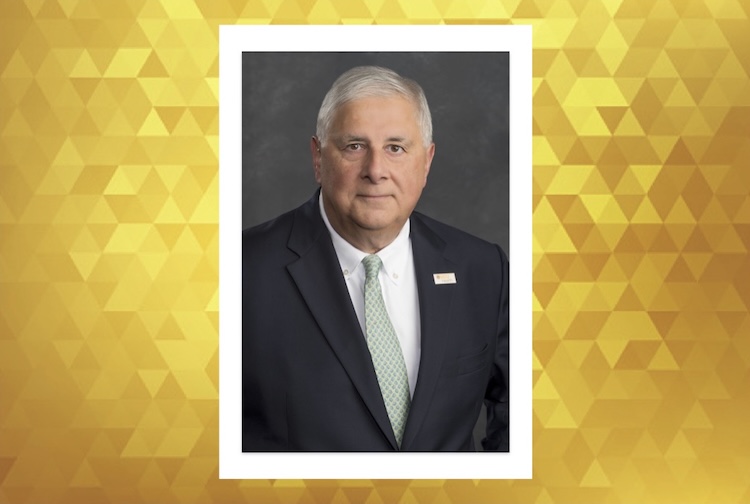
VCU Health surgeon is first on East Coast to complete robotic-assisted kidney implantation
June 26, 2018 The minimally invasive procedure provides an option for obese patients
The minimally invasive procedure provides an option for obese patients
A surgeon at theVCU Health Hume-Lee Transplant Centeris the first on the East Coast to successfully complete a kidney implantation using the da Vinci Surgical System. Along with an interdisciplinary medical team, Chandra Bhati, M.D., associate professor of surgery atVirginia Commonwealth University School of Medicine, implanted a kidney from a living organ donor to a recipient on June 19. During robotic-assisted kidney implantations, the surgeon relies on the surgical system’s robotic arms to complete the procedure and does not use hands to assist with the surgery.
“With this surgery, we are able to offer kidney transplantation to obese people who traditionally have been denied the procedure,” Bhati said, emphasizing that the main benefit of robotic-assisted kidney transplantation is the availability to people who are obese. In obese people whose body mass index is between 35 and 40, the wound infection rate with traditional kidney transplantation is between 30 and 40 percent. The increased risk of infections and other complications leads most transplant surgeons to recommend against kidney transplantation for obese patients.
“With the minimally invasive incision, patients can go home earlier from the hospital, they can return to work earlier, and their risk of wound infection is reduced significantly,” Bhati said, adding that the benefits apply to all patients, not just those who are obese.

Robotic-assisted transplantation is the latest technical milestone in kidney transplant surgery. It presents a less invasive option with a smaller incision site, less pain and a speedier recovery time without compromising the transplanted kidney’s functionality.
More than one-third of U.S. adults (34.9 percent) are recorded as obese by the Centers for Disease Control and Prevention. In accordance with the rising obesity rates, 37 percent of candidates on the United Network for Organ Sharing kidney transplant waiting list are also obese, and one-third of them are either severely or morbidly obese. Kidney transplantation is the preferred treatment for end-stage renal disease patients, as it leads to significant survival advantage and is more cost-effective than chronic dialysis. With the minimally invasive robotic procedure, the surgery will be an option for more patients.
“The Hume-Lee Transplant Center is one of the few transplant centers in the country that has the technical expertise to offer both the robotic-assisted kidney extraction and implantation,” said Marlon Levy, M.D., director of the Hume-Lee Transplant Center. Levy noted that the center relies on the support of VCU School of Medicine’s Department of Surgery. “The spirit of innovation and the support we receive from the Department of Surgery is critical to the success of the transplant enterprise,” he said.
Innovation is not new to the Hume-Lee Transplant Center. The center’s founding chairman, David M. Hume, M.D., performed the first identical-twin kidney transplant in 1957 at what was then the Medical College of Virginia. The kidney transplantation program he established in 1962 was one of the first in the country. Under Hume’s leadership, MCV developed a surgical research laboratory that became one of the world’s foremost centers for kidney transplants. Earlier this month,Bhati performed the first entirely robotic-assisted kidney implantation on the East Coast using a kidney from a deceased donor.
“Hume-Lee has a rich history in kidney transplantation,” Levy said. “With this latest procedure, we are continuing to pioneer the most advanced technological innovations in the field, and ultimately offering the most for the patients who we serve.”
About VCU and VCU Health
Virginia Commonwealth University is a major, urban public research university with national and international rankings in sponsored research. Located in downtown Richmond, VCU enrolls more than 31,000 students in 217 degree and certificate programs in the arts, sciences and humanities. Thirty-eight of the programs are unique in Virginia, many of them crossing the disciplines of VCU’s 11 schools and three colleges. The VCU Health brand represents the VCU health sciences academic programs, the VCU Massey Cancer Center and the VCU Health System, which comprises VCU Medical Center (the only academic medical center and Level I trauma center in the region), Community Memorial Hospital, Children’s Hospital of Richmond at VCU, MCV Physicians and Virginia Premier Health Plan. For more, please visit www.vcu.edu and vcuhealth.org.



